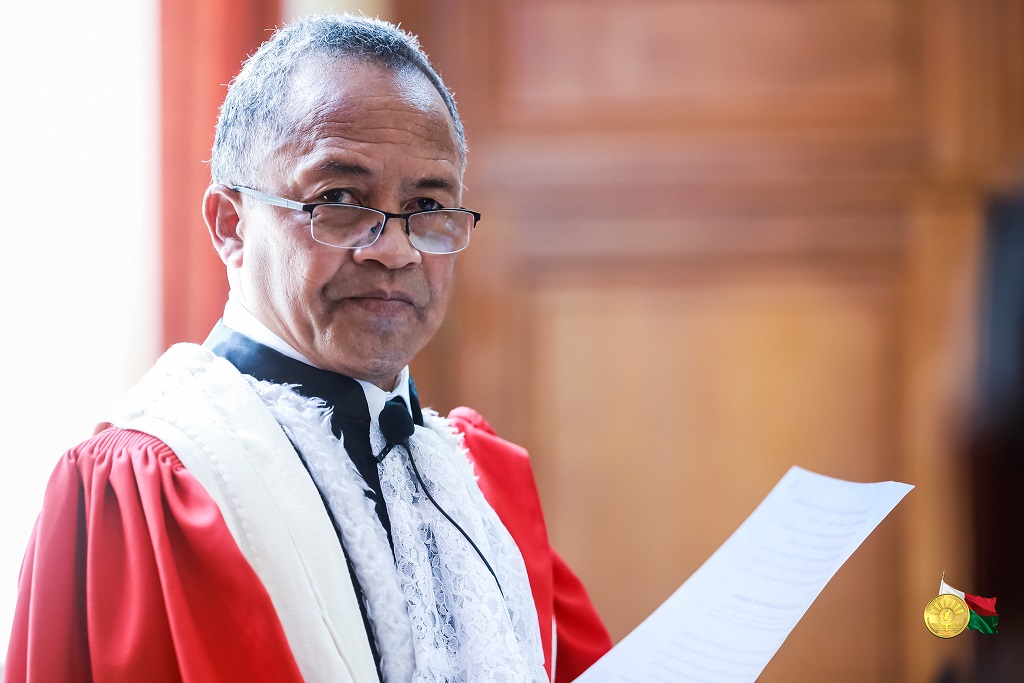Madagascar rejects UN recommendations on LGBTQ discrimination
Moïse Manoël-Florisse, is an African-Caribbean online journalist keeping an eye…
Human rights review called on Madagascar to combat anti-LGBT violence and hate

A coalition of LGBT+ rights organizations in Madagascar is protesting the government’s rejection of proposals to end homophobic bias after the United Nations Human Rights Council called on the country to address the rights of queer people.
“We call for our institutions to take responsibility to end all forms of gender-based violence and discrimination, in accordance with the spirit of the Constitution and human rights. The protection of LGBTQIA+ people is not a privilege, but an imperative of social justice, security, and human dignity. Refusing to act is to endorse impunity and condone violence,” reads a joint communiqué issued July 10 from six human rights organizations, including Queer Place, Mifoha Olo Mazoto, Divers’ Unité, Justice Égalitaire, Men Engage, and Madagascar LGBT+.
The UN Human Rights Council conducted Madagascar’s fourth Universal Periodic Review in January, and issued 235 recommendations to the Indian Ocean country.
Among the recommendations were calls to prevent, combat, and prosecute all forms of discrimination, violence, and hate speech against LGBTI people, and to amend the penal code to ensure that the age of consent was the same for heterosexual and same-sex acts. The government rejected those recommendations.
The delegation led by Minister of Justice Benjamin Alexis Rakotomandimby accepted 178 and rejected 10, with no position was taken on 47 other recommendations. Most of the approved recommendations had already been approved during the previous cycle of the Universal Periodic Review in 2019.
This includes certain recommendations relating to freedom of expression and the eradication of intimidation, arbitrary detention and harassment of human rights defenders and journalists in the exercise of their legitimate work were accepted — a bill on this subject has been under consideration since 2021.
However, other recommendations relating to the recognition and protection of LGBT+ people against discrimination were rejected on the grounds of the legal status quo and “customs.”
For Diamond (pseudonym) of Queer Place Madagascar, an LGBT+ organisation based in the capital Antananarivo, the arguments put forward by the Minister of Justice’s team seem like a pretext to justify inaction.
“What the Minister of Justice said really upset us, but now we know where the state stands. The minister is hiding behind these so-called customs and traditions to avoid taking responsibility,” Diamond says.
Below is the organizations’ public statement, translated into English:
Following its assessment as part of the Universal Periodic Review in 2025, Madagascar was called upon to make a statement at the 59th United Nations Human Rights Council from June 16 to July 3, 2025.
Contrary to media reports since July 3, marriage equality was not the focus of the recommendations. They focused on the recognition and protection of people from the LGBT community.
A reminder of the three recommendations:
- 121.42 Adopt the necessary measures to prevent, combat, and prosecute all forms of discrimination, violence, and hate speech against LGBTI people (Spain)
- 121.43 Take concrete measures to prevent and combat discrimination based on sexual orientation and gender identity and violence against LGBTI people (Switzerland)
- 121.44 Amend Article 331 of the Penal Code to ensure that the age of consent is equal for all, regardless of sexual orientation (Iceland)
These three recommendations were noted but not accepted by the government, citing a contradiction with customs and traditions as well as national legislation.
Yet, the Malagasy Constitution calls in its preamble for the elimination of all forms of injustice, corruption, inequality, and discrimination—the unaccepted recommendations support this. We firmly believe that Malagasy customs and traditions do not justify hatred, violence, or discrimination against any citizen, regardless of their gender identity or sexual orientation. The refusal to take action is therefore a failure of the constitutional guarantee of human security and legal equality, and contrary to human rights.
We call for our institutions to take responsibility to end all forms of gender-based violence and discrimination, in accordance with the spirit of the Constitution and human rights.
The protection of LGBTQIA+ people is not a privilege, but an imperative of social justice, security, and human dignity. Refusing to act is to endorse impunity and condone violence.




